
Table of Contents
- What is AI Used for in Marketing?
- The Benefits of Using AI in Marketing
- For Content Marketing
- For Marketing Automation
- For Digital Marketing
- For Market Research
- The Best AI Tools for Customer Journey Mapping
- For Trend Analysis and Forecasting
- For Advertising and Social Media
- How to Choose the Right AI Tool for Your Marketing Needs
- Future Trends in AI for Marketing
- Conclusion
As businesses increasingly embrace technology to gain a competitive edge, AI tools for marketing have become indispensable in crafting strategies, analyzing data, and optimizing campaigns.
In 2024, leveraging the right AI marketing tools can save time, enhance creativity, and drive results. This blog explores the best AI tools for digital marketing, content marketing, automation, and more, offering a detailed review of top solutions that can transform your marketing efforts.
What is AI Used for in Marketing?
Artificial Intelligence (AI) is transforming the marketing landscape by automating repetitive tasks, analyzing vast amounts of data, and providing insights that help businesses make informed decisions. AI marketing tools can handle everything from content creation and SEO optimization to customer behavior analysis and marketing automation. By utilizing AI for marketing, brands can personalize their content, target audiences more effectively, and optimize campaigns in real-time, improving overall efficiency and ROI.
AI also plays a crucial role in predicting market trends, enabling marketers to stay ahead of competitors by anticipating customer needs and preferences. Whether it's automating email marketing or using AI-powered chatbots for customer support, the potential of AI in marketing is limitless.

The Benefits of Using AI in Marketing
Integrating AI into your marketing strategy offers several advantages, including:
- Efficiency and Time Savings: AI can automate time-consuming tasks, such as content creation, social media management, and email marketing.
- Personalization: AI allows marketers to personalize messages and campaigns based on customer behavior and preferences.
- Data-Driven Insights: AI provides actionable insights through data analysis, helping businesses optimize their strategies.
- Improved Customer Engagement: AI-powered tools can analyze customer interactions and provide real-time responses, improving the customer experience.
For a broader look at AI innovations, check out the best AI tools reshaping various industries.
The Best AI Tools for Content Marketing
Content marketing remains a key strategy for brand awareness, and AI tools can streamline the process of content creation, optimization, and distribution.
1. Claude | AI Content Creation Platform
Claude is a language model AI tool that assists with generating content ideas and drafts, offering suggestions for improving tone, structure, and flow. It’s particularly helpful for writers looking to streamline their content creation process and boost productivity.
Key Features:
- Generate long-form content like blog posts and articles based on your input.
- Craft different creative text formats, including social media captions, website copy, and ad copy.
- Offer multiple content style options to match your brand voice and target audience.
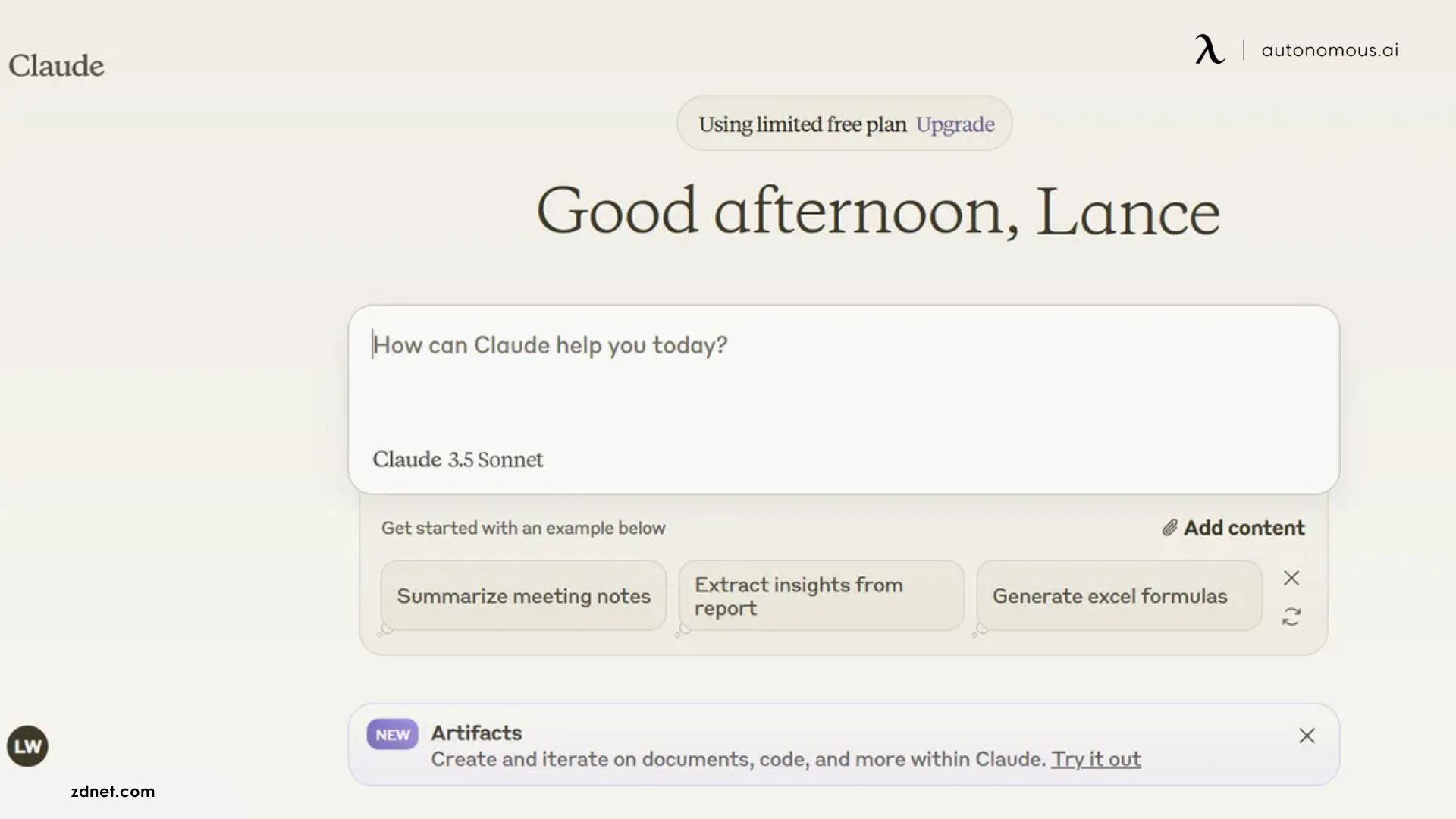
2. Surfer SEO | AI-Powered Content Optimization
Surfer SEO is a powerful AI tool for writing that helps content marketers optimize their content for search engines. It analyzes your content based on keywords and compares it to competitors, providing actionable insights to boost your rankings.
Key Features:
- Analyze competitor content and identify winning strategies.
- Generate content outlines with relevant keywords and subheadings.
- Receive real-time content performance suggestions and audit your existing content.
3. Grammarly | AI-Powered Writing Assistant
Grammarly is an AI-powered writing assistant that ensures your content is clear, concise, and grammatically correct. It offers suggestions for sentence structure, style improvements, and tone adjustments, making it ideal for content marketing. Also, this is one of the best paraphrase AI tools.
Key Features:
- Correct grammatical errors and typos.
- Enhance sentence structure and improve clarity.
- Suggest synonyms and alternative word choices.
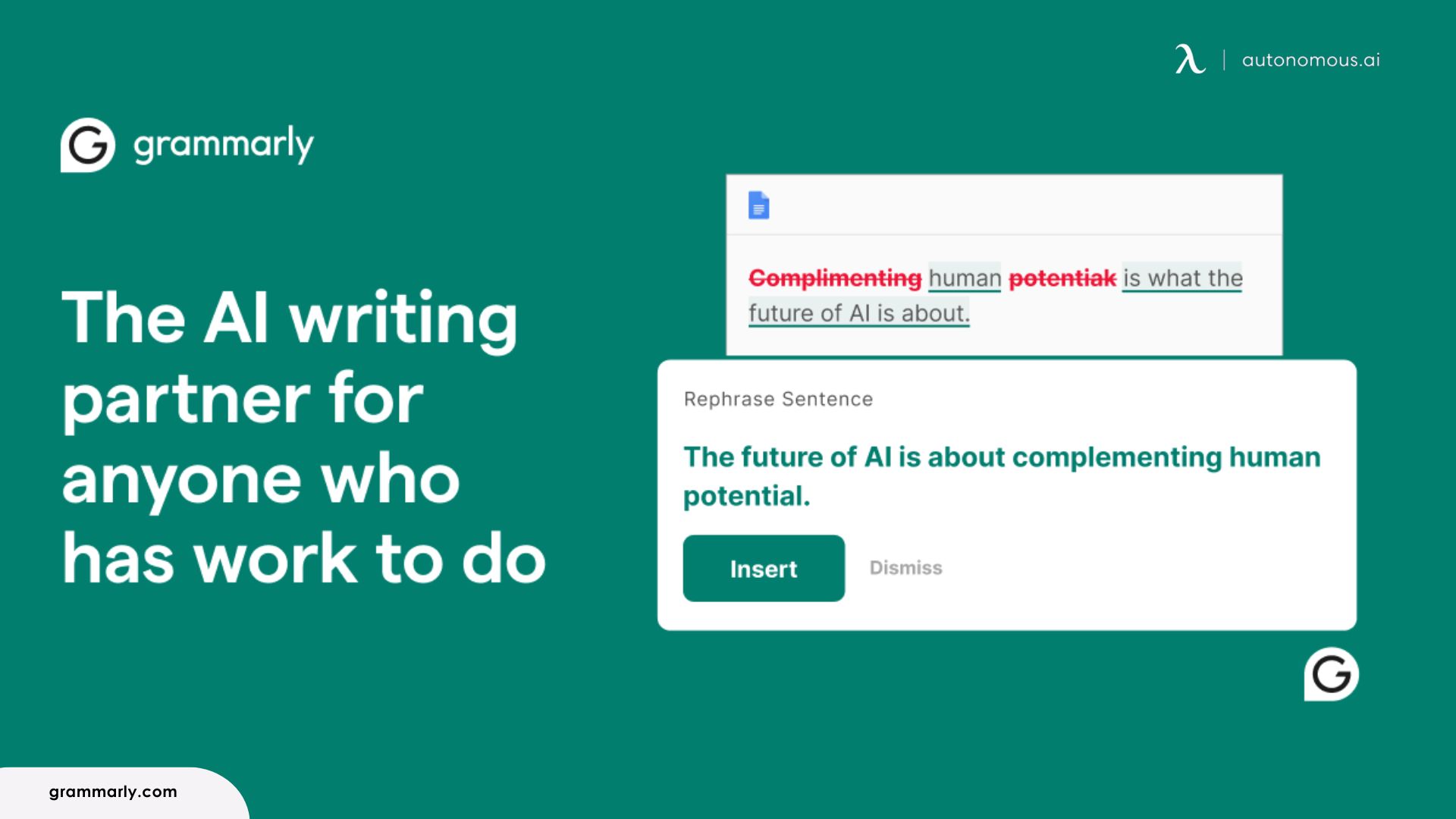
4. ChatGPT | Generative Pre-trained Transformer
ChatGPT by OpenAI is a versatile AI chatbot tool that can generate engaging content, answer queries, and even write articles. Marketers use ChatGPT to draft blog posts, social media content, and generate ideas for campaigns.
Key Features:
- Generate different creative text formats like poems, code, scripts, musical pieces, etc.
- Answer your questions in an informative way, even open ended, challenging, or strange ones.
- Engage in conversation to brainstorm ideas or explore concepts relevant to your content creation.
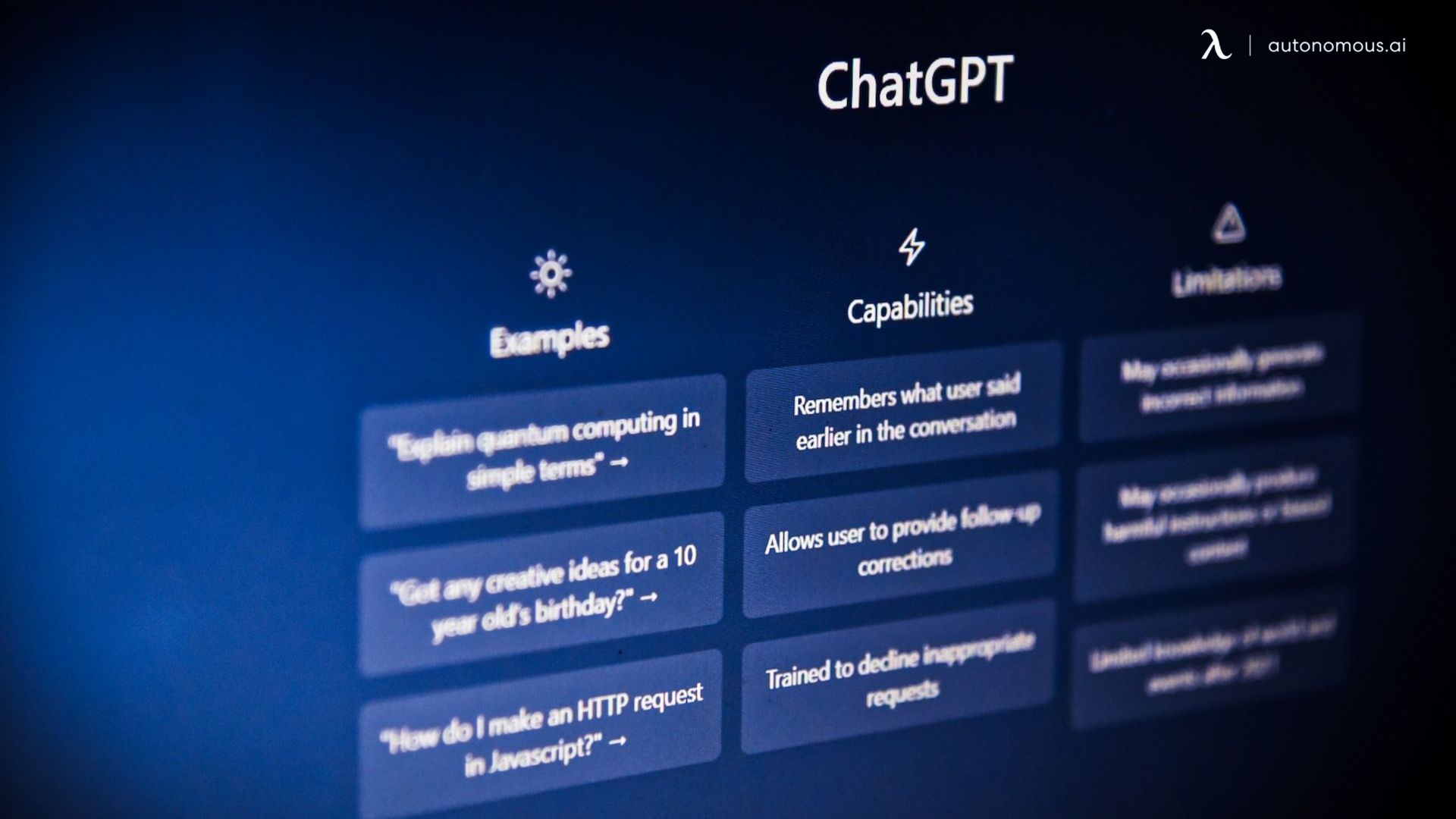
5. Undetectable AI | AI-Powered Content Detection
As an AI tool like ChatGPT, Undetectable AI helps marketers create human-like content using AI while bypassing plagiarism detectors. It rewrites and enhances existing content, making it ideal for repurposing or improving low-performing articles.
Key Features:
- Refine AI-generated text to make it indistinguishable from human-written content.
- Avoid detection by plagiarism checkers and other AI content detection tools.
- Maintain the original meaning and intent of the AI-generated content.
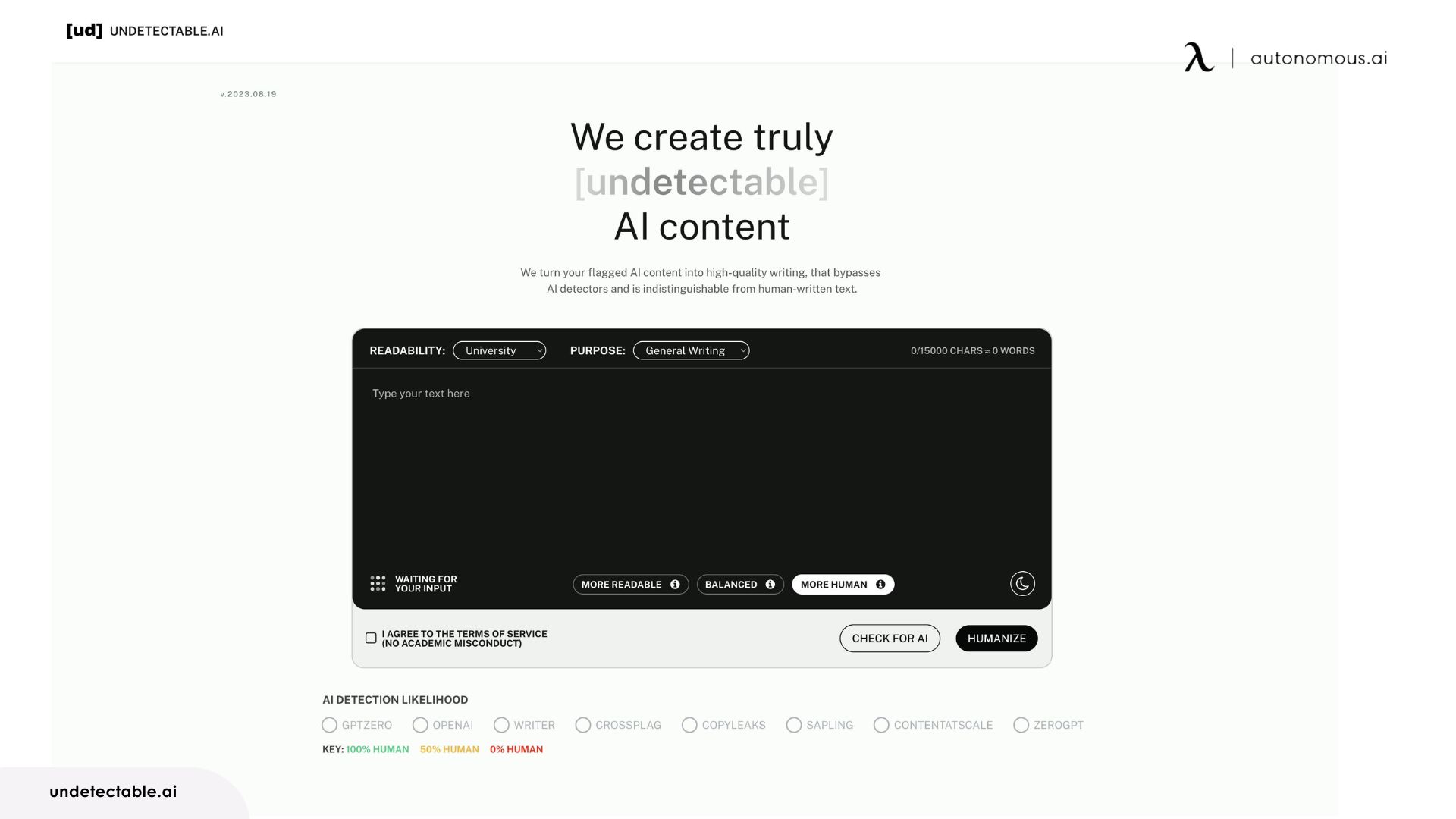
The Best AI Tools for Marketing Automation
Automation is a crucial part of modern marketing strategies, and AI tools have taken automation to new levels by optimizing workflows and campaign management.
1. Zapier | AI-Powered Workflow Automation
Zapier is an AI-driven tool that automates workflows by connecting apps and services. For marketers, this means automating processes such as email marketing, social media posting, and lead generation.
Key Features:
- Create automated workflows (zaps) to connect tools like email marketing platforms, CRM systems, and social media platforms.
- Automate tasks like lead generation, email campaigns, and social media posting.
- Integrate with a wide range of popular marketing tools.
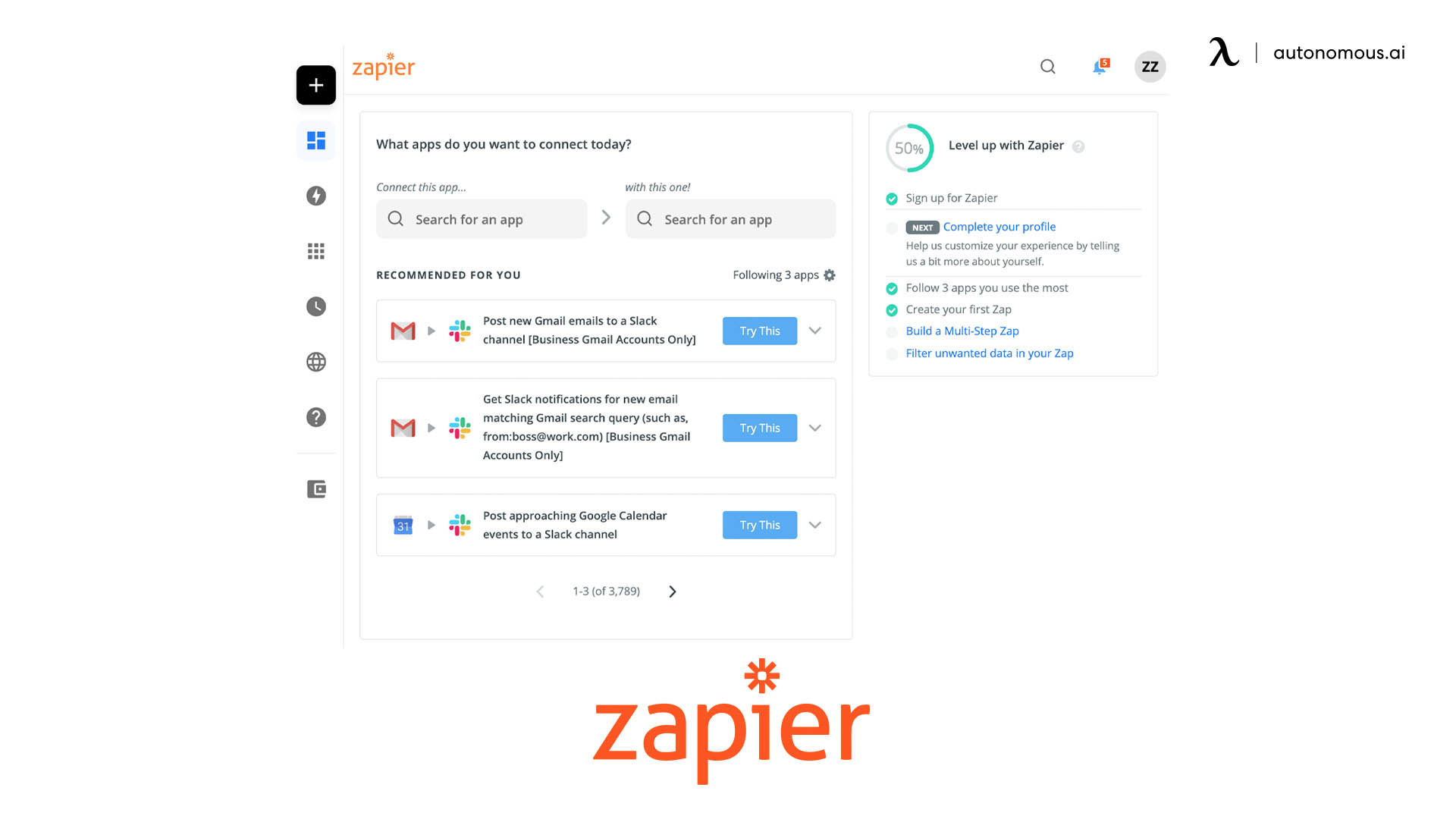
2. Reply.io's AI Sales Email Assistant
Reply.io is a sales email automation platform that uses AI to help businesses create personalized email campaigns. The AI assistant drafts emails, suggests improvements, and schedules follow-ups to optimize sales outreach.
Key Features:
- Generate personalized sales email templates based on recipient data.
- Optimize email subject lines and body text for better engagement.
- Track email performance and analyze recipient behavior.
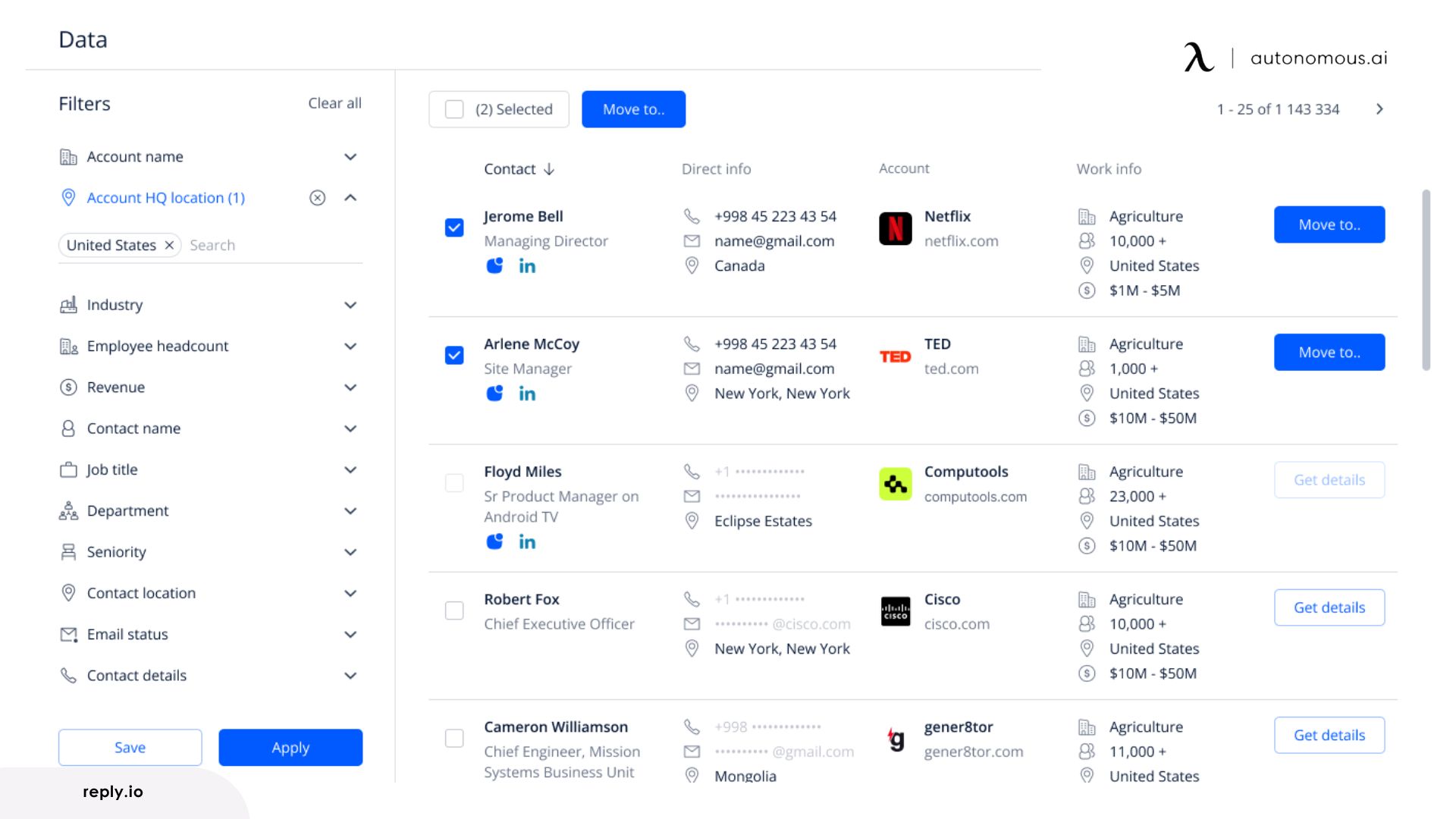
The Best AI Tools for Digital Marketing
Digital marketing involves managing multiple platforms and strategies, and AI tools make it easier to stay on top of campaigns, analyze data, and engage with customers.
1. Sprout Social | AI-Powered Social Media Management
Sprout Social is a social media management platform that leverages AI to provide insights on audience engagement, content performance, and scheduling. It helps marketers create better social media strategies and manage multiple platforms effectively.
Key Features:
- Schedule and publish social media content across multiple platforms.
- Analyze social media performance and track key metrics.
- Engage with your audience through social listening and monitoring.
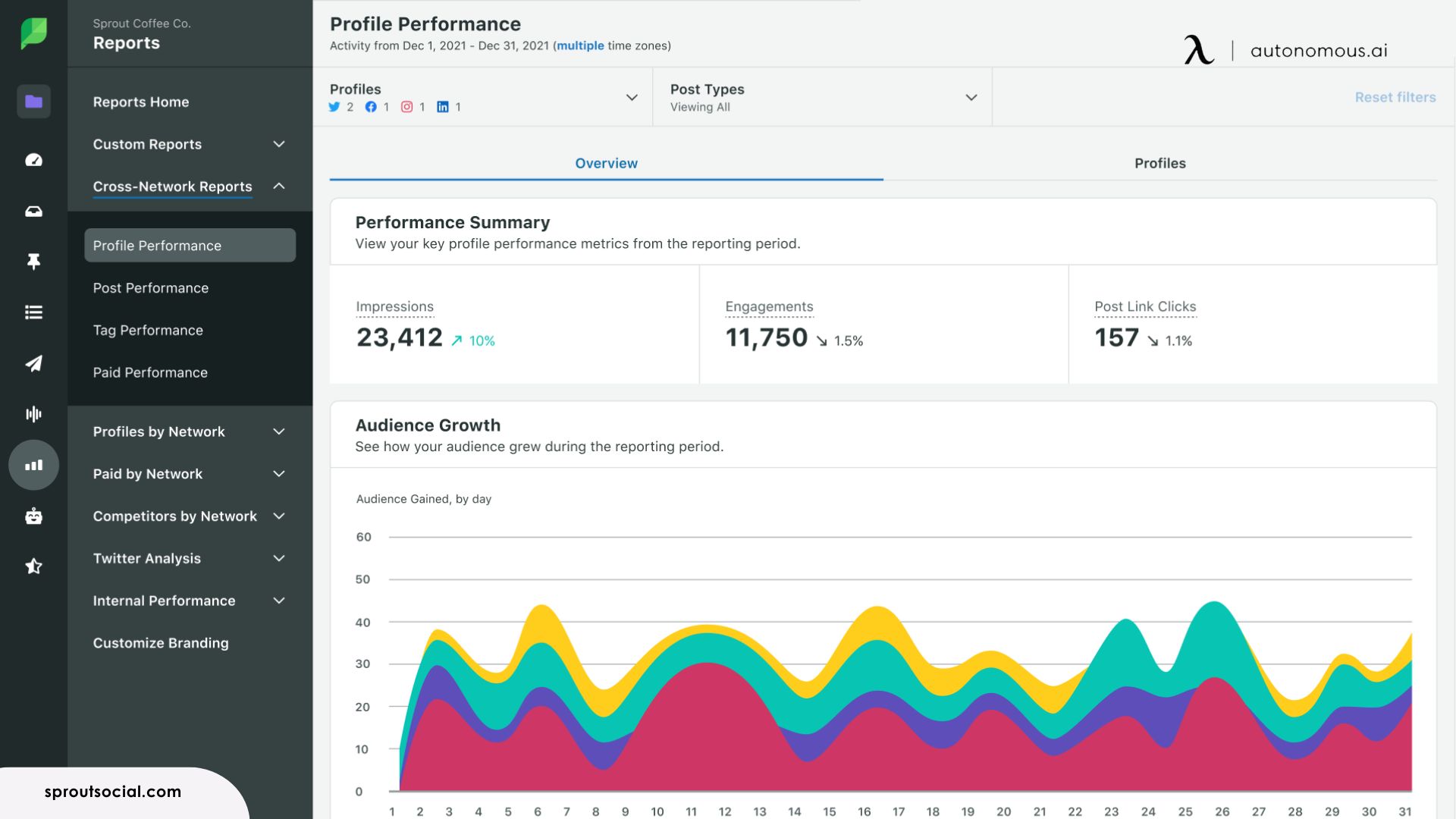
2. HubSpot | All-in-One Marketing Platform
HubSpot is an all-in-one marketing platform that uses AI to optimize content creation, lead management, and email marketing. It offers a suite of tools that allow businesses to manage campaigns across multiple channels.
Key Features:
- Create and manage marketing campaigns, lead generation, and customer nurturing.
- Analyze marketing performance and track key metrics.
- Leverage AI-powered features like predictive analytics and personalized marketing.
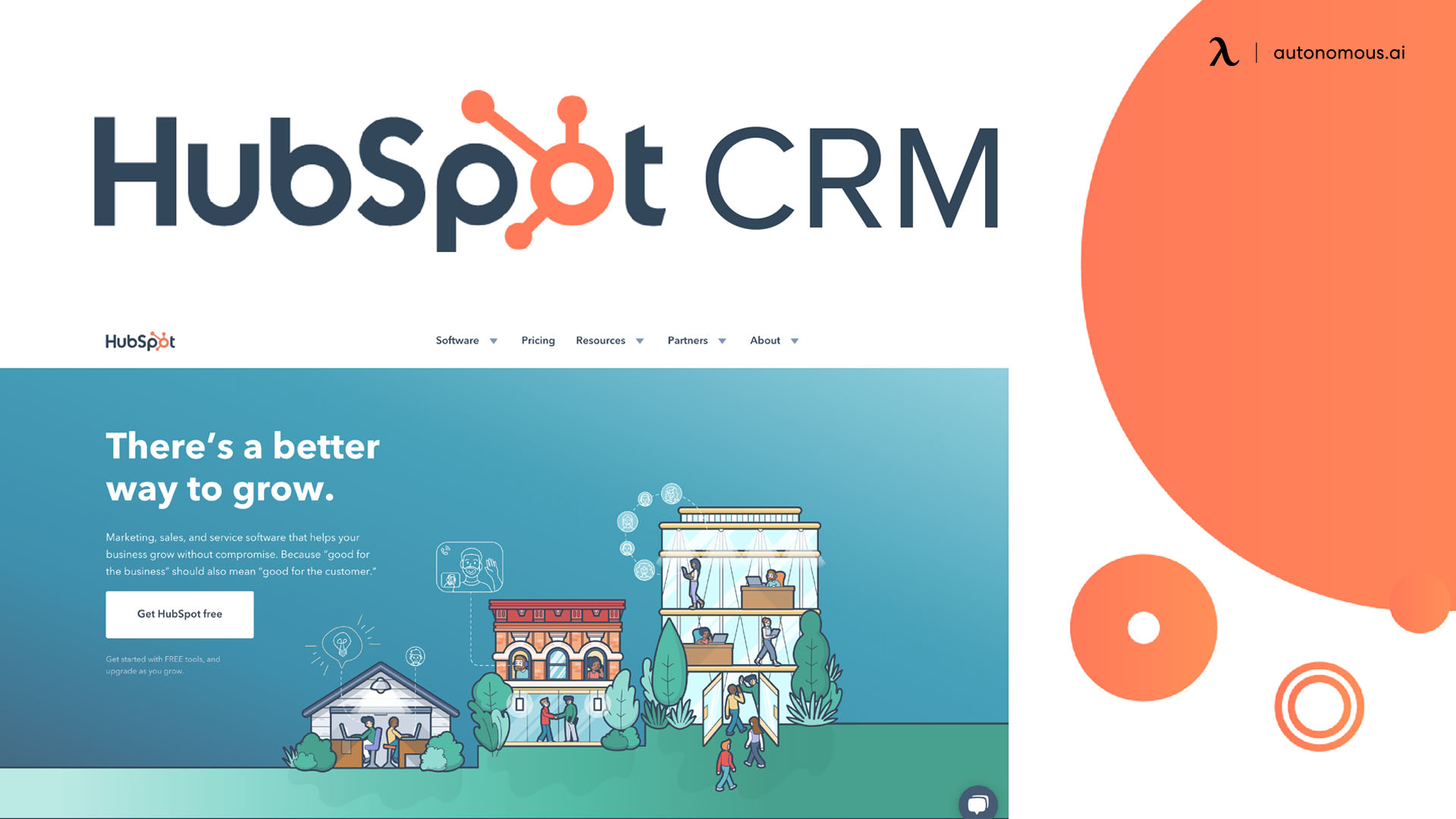
3. Zapier | AI-Powered Workflow Automation
Zapier also shines in digital marketing by automating tasks like customer segmentation, lead nurturing, and CRM integration. Its ability to connect different apps makes it a go-to solution for marketers looking to optimize their digital marketing workflows.
Key Features:
- Connect your social media accounts to other marketing tools and automate tasks like scheduling posts, sharing content, and tracking engagement.
The Best AI Tools for Market Research
Market research is vital for understanding customer preferences, identifying business tech trends, and crafting data-driven strategies. AI tools provide detailed insights to help marketers make informed decisions.
1. Answer Socrates
Answer Socrates is an AI-powered market research tool that helps marketers discover what potential customers are searching for. It provides real-time data on trending questions and topics, allowing businesses to tailor their content and SEO strategies.
- Best For: Discovering trending questions and topics.
- Key Features: Real-time trend analysis, SEO keyword suggestions, content ideas.
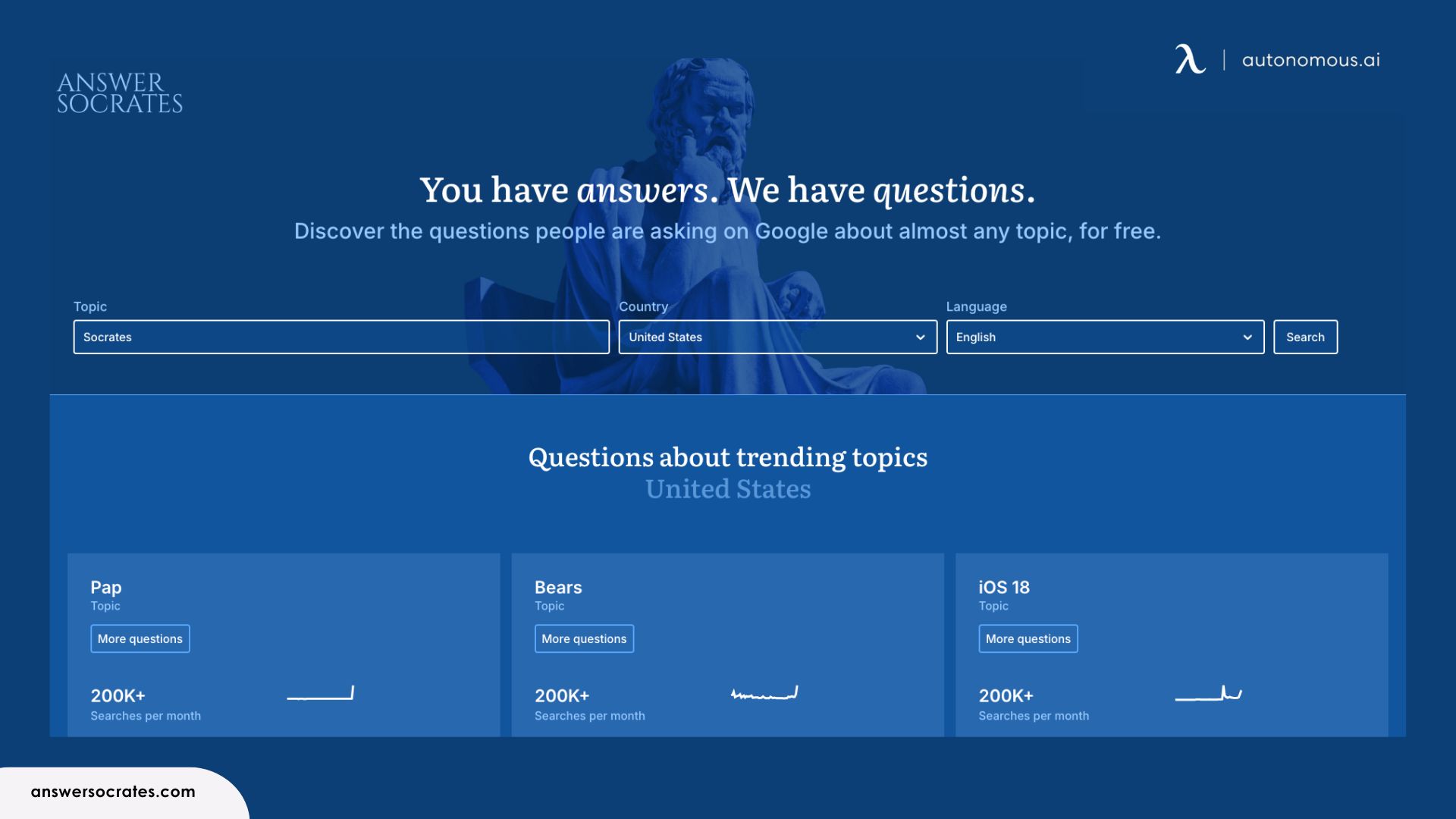
2. SparkToro
SparkToro is an audience intelligence platform that uses AI to help marketers understand their target audience. It provides insights into audience behavior, including preferred social media channels, hashtags, and content preferences.
- Best For: Audience analysis and market research.
- Key Features: Audience demographics, behavior insights, competitor analysis.
3. Google Trends
Google Trends is a free tool that shows trending topics and search queries. It’s essential for marketers looking to capitalize on timely trends and align their content with what audiences are actively searching for.
- Best For: Trend analysis and content marketing.
- Key Features: Search trend data, keyword analysis, regional insights.
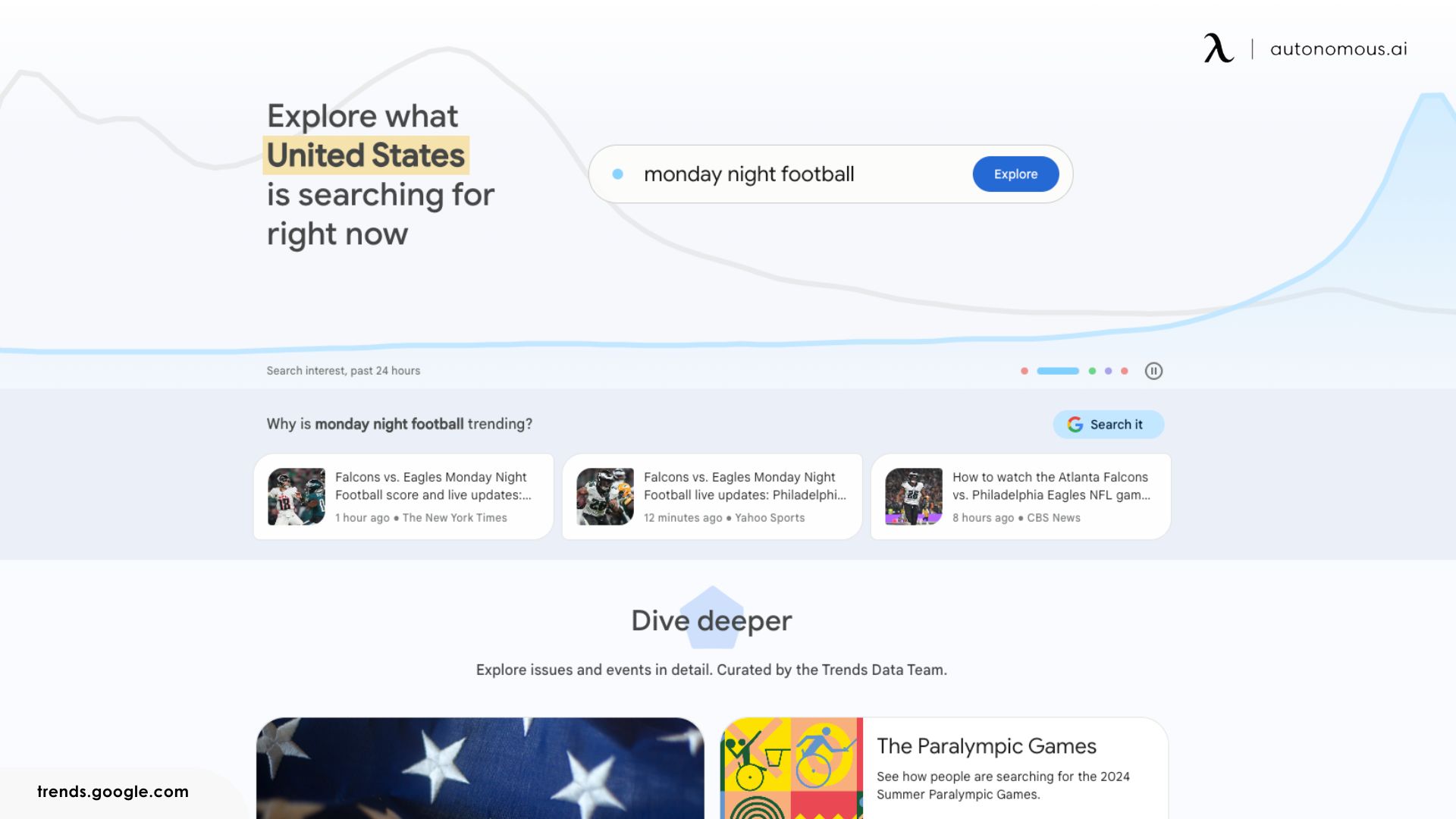
The Best AI Tools for Customer Journey Mapping
Understanding the customer journey is key to optimizing your marketing strategy. These AI tools help businesses visualize and improve their customer experience.
1. Kissmetrics | AI-Powered Analytics
Kissmetrics provides behavioral analytics and insights into how customers interact with your website. By tracking their journey across your digital platforms, you can optimize touchpoints and improve conversion rates.
Key Features:
- Track customer interactions across multiple channels and touchpoints.
- Analyze customer data to identify pain points and opportunities for improvement.
- Create customer journey maps to visualize the customer experience.
2. Mixpanel | Product Analytics
Mixpanel offers real-time product analytics, helping marketers track customer engagement and understand their journey from awareness to conversion. It provides insights into how users interact with products and what factors influence their decisions.
Key Features:
- Track user behavior and identify key metrics.
- Create funnels to analyze conversion rates and identify drop-off points.
- Segment users based on behavior and demographics.
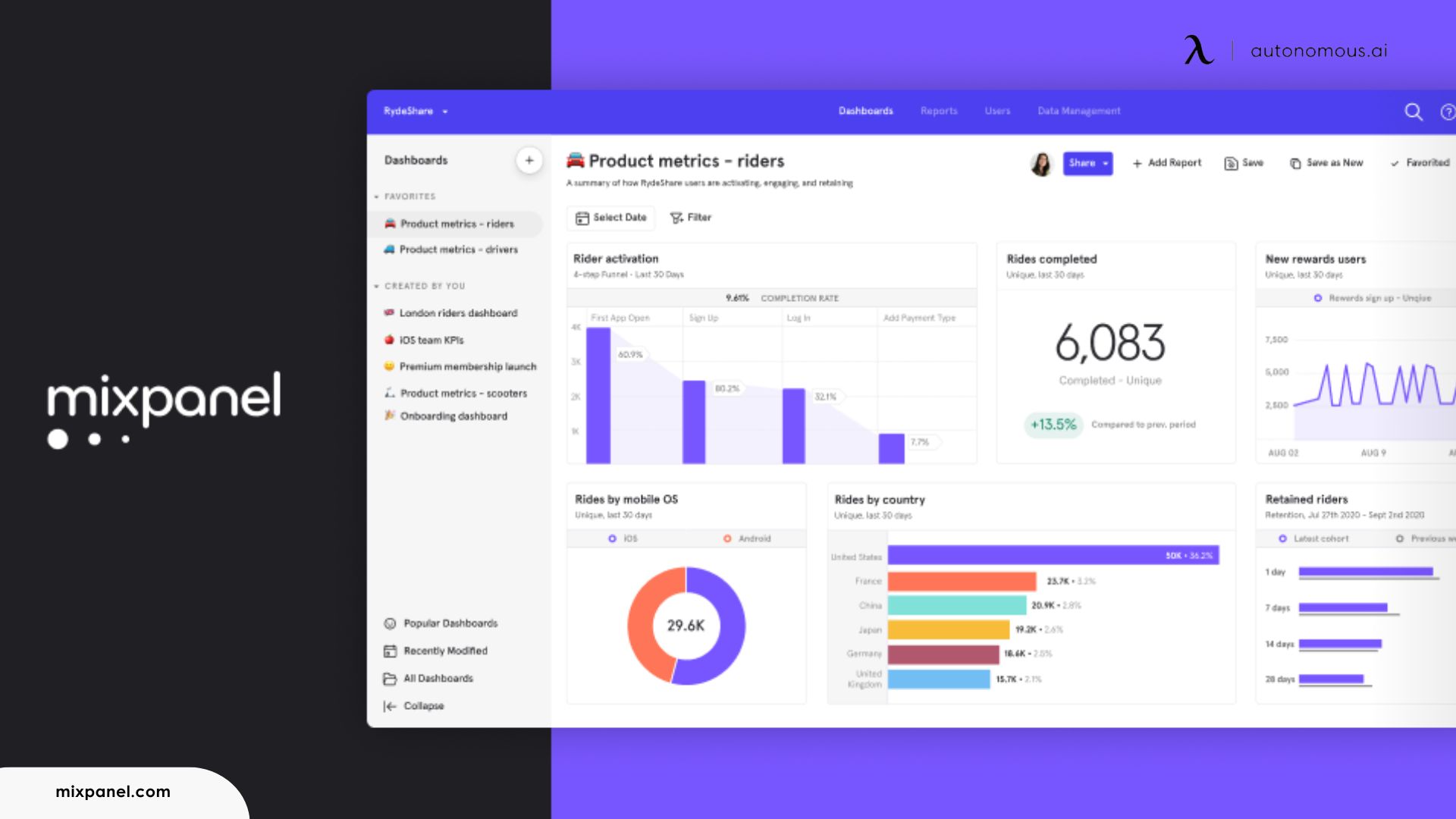
3. Amplitude | Product Analytics
Amplitude is another leading customer journey mapping tool that uses AI to track user behavior across different platforms. It provides insights into customer retention, conversion rates, and engagement.
Key Features:
- Track user behavior and analyze product usage.
- Identify key metrics and prioritize product improvements.
- Leverage AI-powered features like predictive analytics and anomaly detection.
4. Semrush Persona | Customer Persona Creation
As one of the most technological advances in the workplace, Semrush Persona helps businesses build detailed customer personas using AI-driven insights. It collects data on customer demographics, behaviors, and preferences, allowing marketers to tailor their campaigns more effectively.
Key Features:
- Analyze customer data to identify key demographics, behaviors, and pain points.
- Create detailed customer personas to guide your marketing efforts.
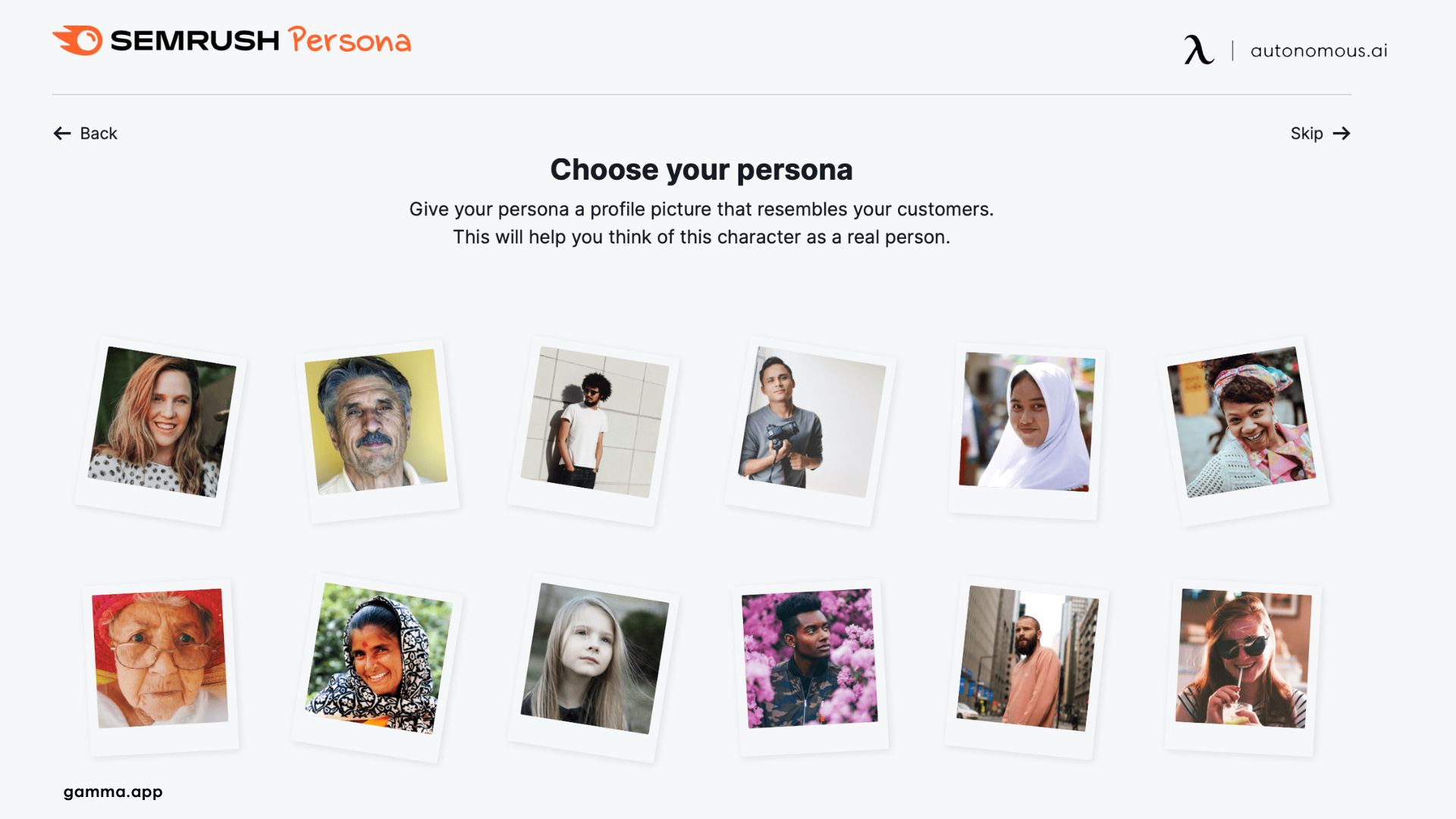
The Best AI Tools for Trend Analysis and Forecasting
Trend analysis and forecasting are essential for predicting market shifts and staying ahead of competitors. AI tools in this category offer real-time insights to help marketers plan future strategies.
1. Talkwalker | Social Media Listening
Talkwalker is a social listening tool that monitors conversations across social media, news, and blogs. Its AI-powered analytics help marketers track trends, measure brand sentiment, and identify key influencers.
Key Features:
- Track mentions of your brand, competitors, and industry keywords.
- Analyze sentiment and identify key influencers.
- Gain insights into customer needs and preferences.
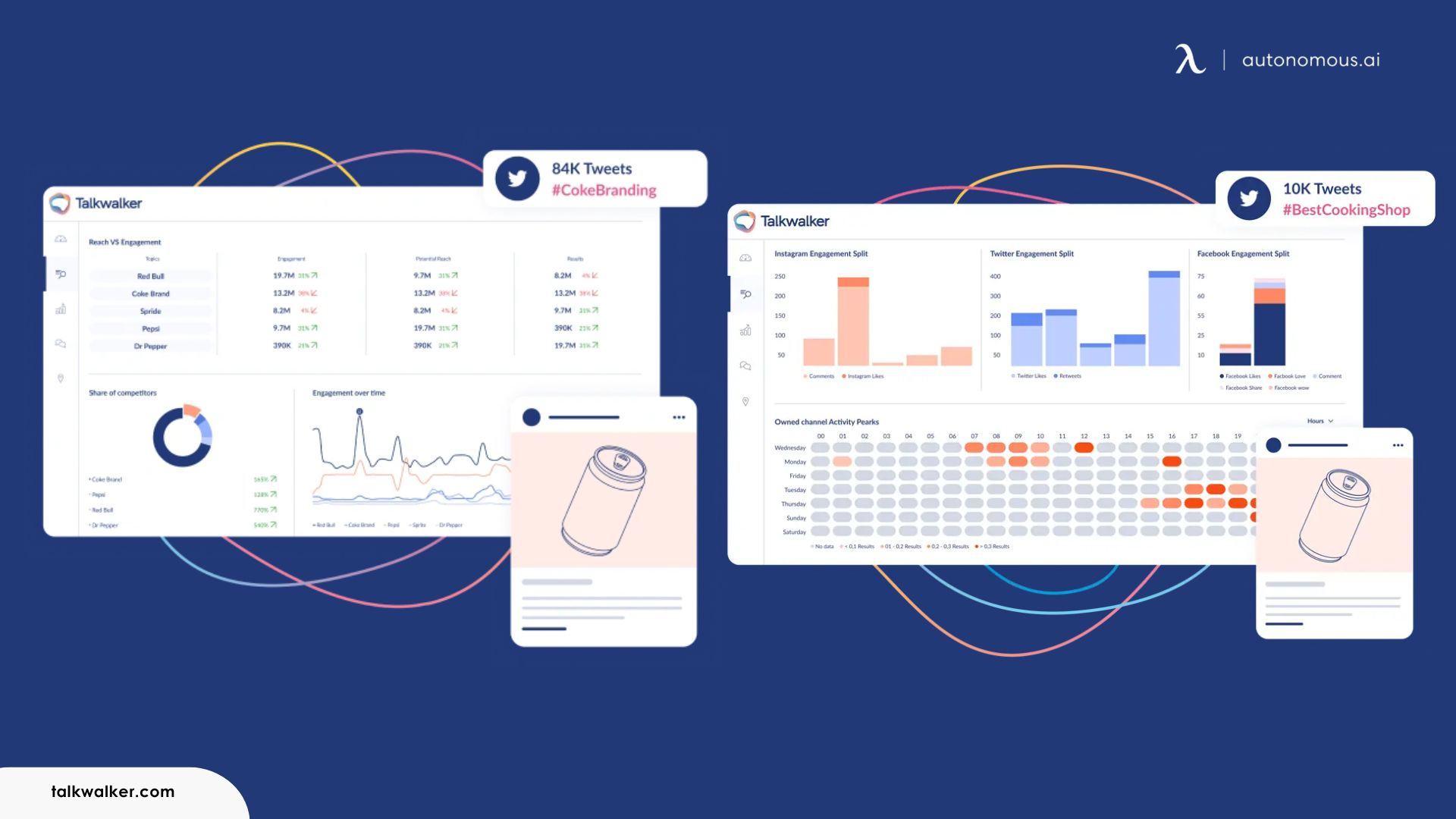
2. TrendKite | Media Monitoring
TrendKite uses AI to analyze media trends and predict the impact of PR campaigns. It provides comprehensive insights into how specific marketing strategies are performing and offers recommendations for future campaigns based on trend data.
Key Features:
- Monitor media coverage and identify key trends.
- Track brand sentiment and identify opportunities for media outreach.
- Gain insights into industry news and developments.
3. Zoho Social | Social Media Management
Zoho Social offers a range of AI-driven tools for trend analysis, helping marketers track the performance of their social media campaigns. Its forecasting features enable brands to plan their social strategies based on projected trends.
Key Features:
- Schedule and publish social media content across multiple platforms.
- Analyze social media performance and track key metrics.
- Engage with your audience through social listening and monitoring.
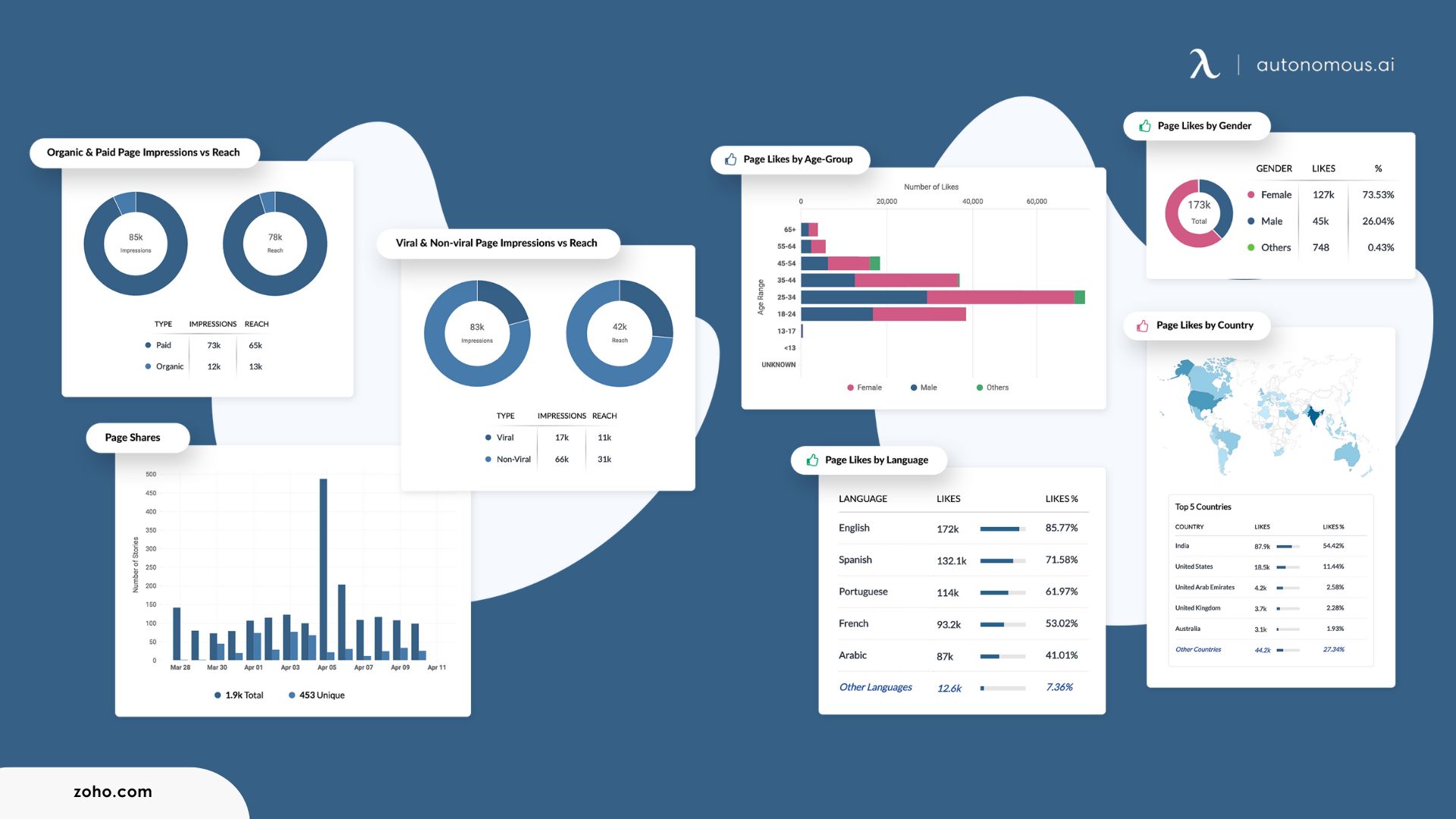
4. Seismic | Sales Enablement
Seismic provides AI-driven insights into sales and marketing alignment, offering trend forecasting tools that help marketers tailor their strategies based on future trends. It integrates with content platforms to provide real-time recommendations for optimizing sales and marketing collateral.
Key Features:
- Centralize and manage sales content, including presentations, collateral, and email templates.
- Provide personalized content recommendations based on customer data.
- Track sales activity and analyze performance metrics.
5. Bloomreach | Digital Commerce Platform
Bloomreach is a commerce experience cloud that uses AI to provide personalized trend analysis and forecasting for eCommerce businesses. Its tools allow marketers to predict purchasing trends and optimize content and campaigns accordingly.
Key Features:
- Personalized product recommendations and website experiences based on customer data.
- Optimize product pages and checkout processes for better conversion rates.
- Analyze customer behavior and identify opportunities for improvement.
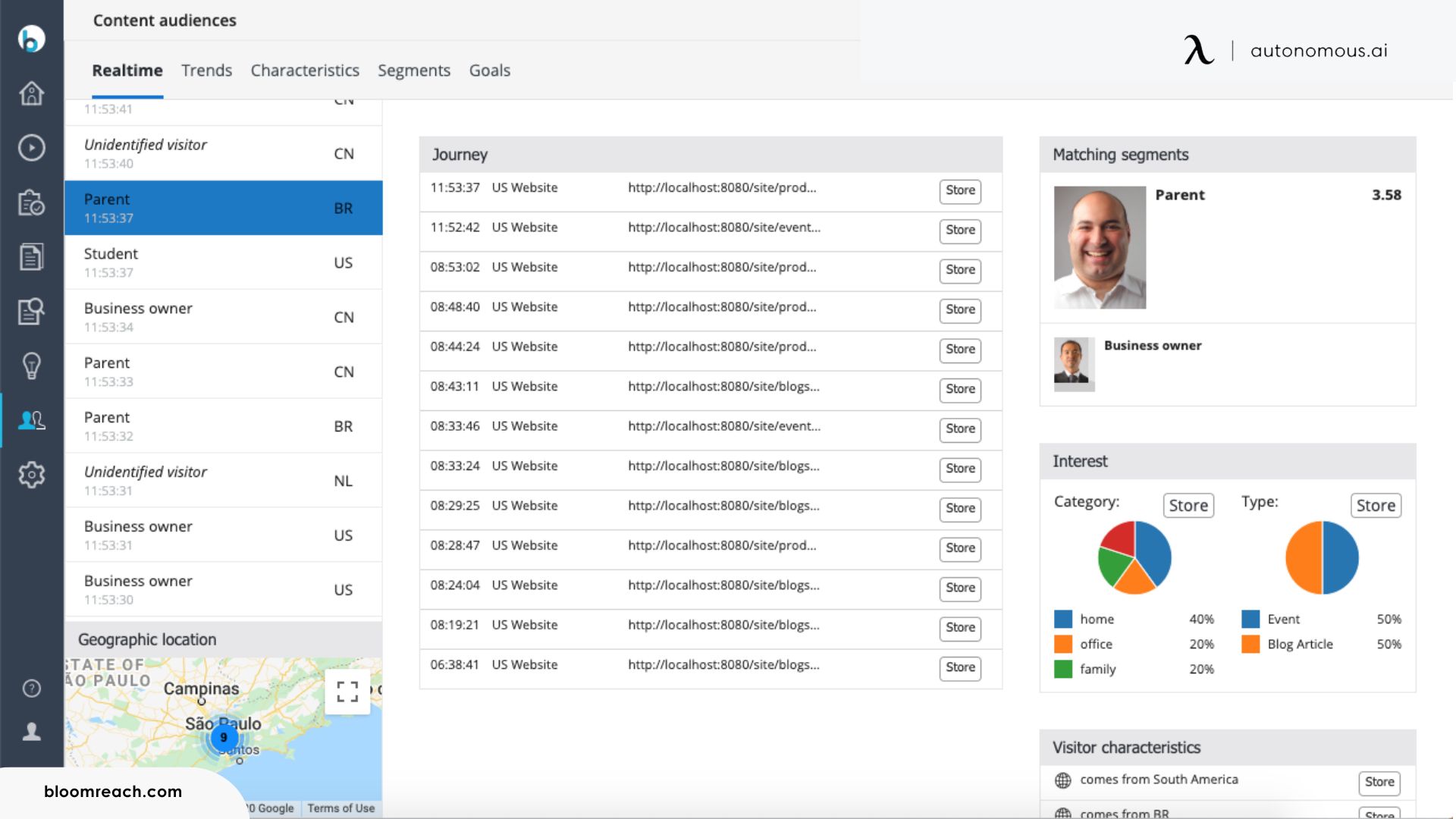
Detailed Review: Best AI Tools for Advertising and Social Media
Managing social media and advertising campaigns is a core component of modern digital marketing strategies. AI tools like Cortex, Smartly.io, AdParlor, and Sprout Social offer enhanced capabilities for optimizing ad placements, managing content, and analyzing performance.
1. Cortex | AI-Powered Marketing Analytics
Cortex uses AI to analyze visual content and recommend the best times and platforms to post. It helps marketers increase engagement by identifying patterns in user behavior and optimizing content strategies for better results.
Key Features:
- Analyze marketing data to identify trends and insights.
- Predict future performance and optimize campaigns accordingly.
- Integrate with various marketing tools to provide a unified view of your data.
2. Smartly.io | AI-Powered Social Advertising
Smartly.io is a leading AI-driven advertising tool that helps businesses manage, automate, and optimize social media ad campaigns. It integrates with platforms like Facebook and Instagram to ensure ads reach the right audience at the right time.
Key Features:
- Automatically optimize ad campaigns for maximum ROI.
- Create and manage ad campaigns across multiple social media platforms.
- Track campaign performance and analyze key metrics.

3. AdParlor | AI-Powered Digital Advertising
AdParlor provides AI-based tools for creating and optimizing ads across multiple social platforms. It offers real-time performance analytics, allowing marketers to adjust their campaigns based on live data.
Key Features:
- Create and manage ad campaigns across multiple platforms.
- Optimize campaigns for better performance and ROI.
- Track campaign performance and analyze key metrics.
How to Choose the Right AI Tool for Your Marketing Needs
With so many AI marketing tools and applications of AI in the workplace available, selecting the best one can be challenging. Here are a few factors to consider when choosing the right AI tools for marketing in 2024:
- Identify Your Goals: What are you trying to achieve? Whether it's content creation, social media management, or automation, your marketing goals should guide your choice of tools.
- Consider Your Budget: While some AI tools are free, others offer premium features that may come with a subscription. Decide how much you're willing to invest in your marketing efforts and explore free AI tools for marketing if you're on a tight budget.
- Check for Integration: Many AI tools integrate with other platforms such as CRMs, social media management tools, or email marketing software. Ensure the AI tool you choose fits seamlessly into your existing tech stack.
- Ease of Use: Some AI marketing tools come with a steep learning curve. Select a tool with an intuitive interface that your team can easily adopt.
- Scalability: As your business grows, so should your marketing efforts. Choose an AI tool that can scale with your business needs, allowing you to expand your campaigns and customer engagement.

Future Trends in AI for Marketing
The future of AI in marketing is promising, with tools becoming more sophisticated and user-friendly. Some emerging trends include:
- Hyper-Personalization: AI tools are moving towards deeper levels of personalization, offering tailored content and experiences for individual users based on behavior, preferences, and past interactions.
- AI-Driven Predictive Analytics: Predictive analytics will continue to play a key role in helping marketers forecast trends, optimize campaigns, and make data-driven decisions with greater accuracy.
- Voice and Visual Search Optimization: With the growing popularity of voice assistants and visual search, AI will enhance marketers' ability to optimize content for voice and visual search queries.
- Advanced AI Chatbots: AI chat will become even more sophisticated, providing human-like interactions and better customer support across websites and social media platforms.
- Integration with Augmented Reality (AR): AI and AR will increasingly combine to offer immersive marketing experiences, such as virtual try-ons and interactive ads, providing customers with more engaging ways to interact with brands.
To further explore how AI is shaping the future of marketing and beyond, be sure to check out these resources:
By staying ahead of AI trends, marketers can ensure they are equipped with the most powerful tools to drive growth and success in the digital age.

Conclusion
AI is revolutionizing the marketing landscape, offering powerful tools to streamline workflows, personalize experiences, and drive better results. By leveraging the best AI marketing tools, you can gain a competitive edge, enhance your marketing efforts, and achieve your business goals.
Remember to explore the tools mentioned in this blog and consider your specific needs and budget when selecting the right AI solutions for your marketing strategy.
Stay connected with us!
Subscribe to our weekly updates to stay in the loop about our latest innovations and community news!
Spread the word


/https://storage.googleapis.com/s3-autonomous-upgrade-3/production/ecm/230914/bulk-order-sep-2023-720x1200-CTA-min.jpg)

/https://storage.googleapis.com/s3-autonomous-upgrade-3/production/ecm/230922/DanielAnderson.jpg)